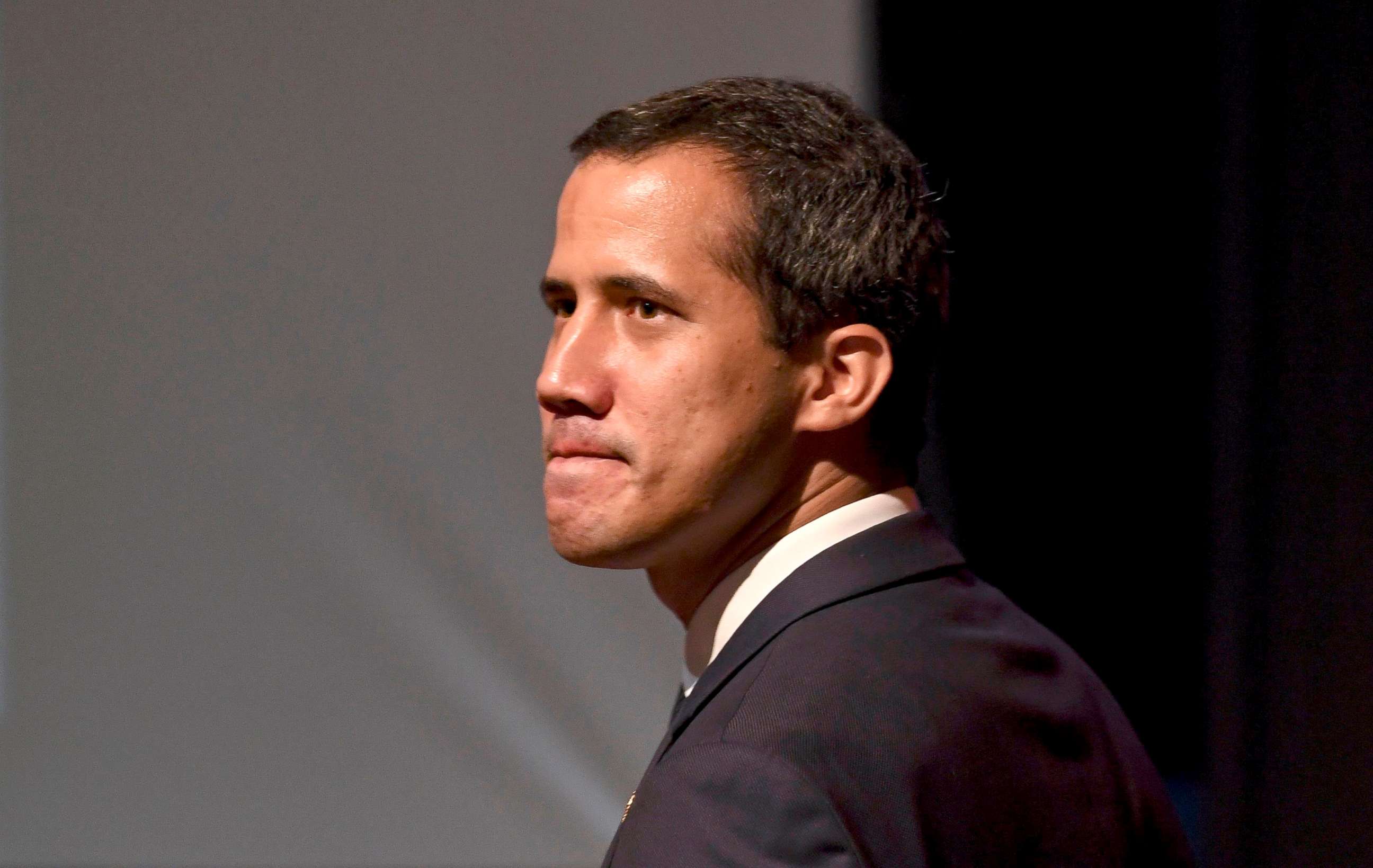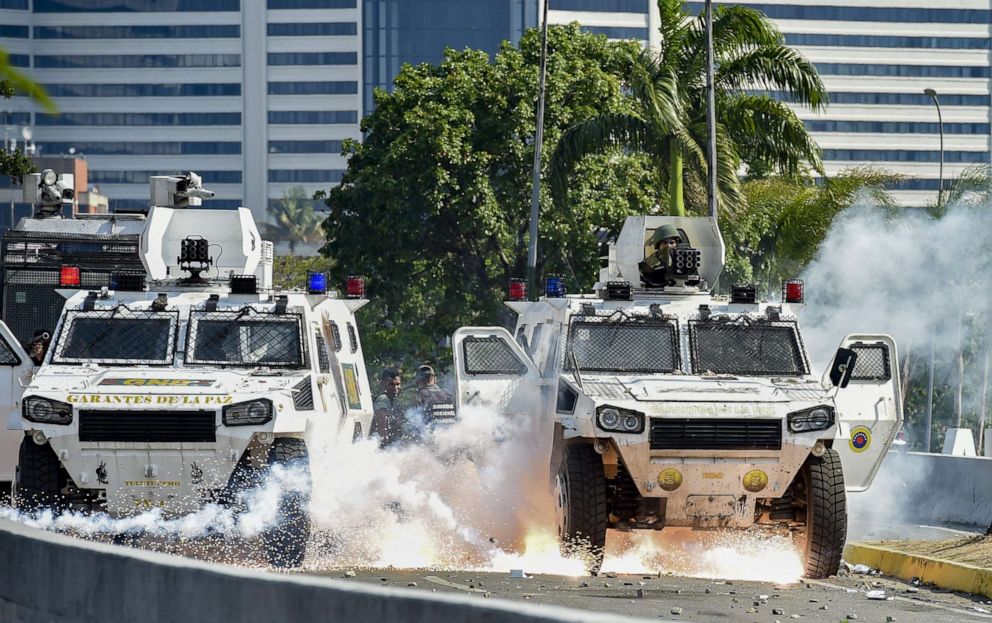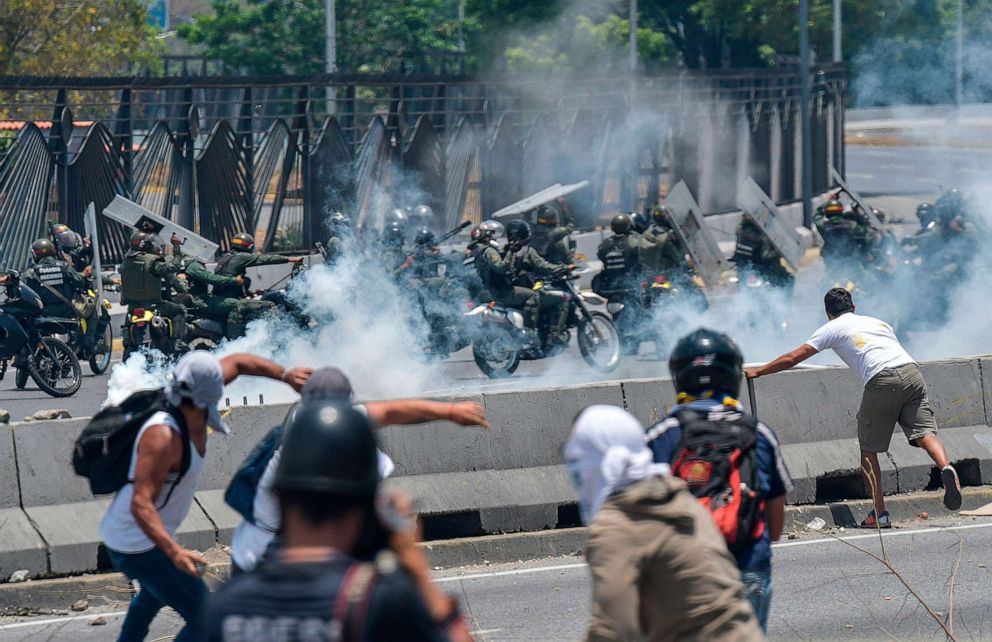Interim President Juan Guaido says 'we must evaluate all our options' to rescue Venezuela
Venezuela's interim president said they are making progress, even if it is slow.
Two days after violent clashes ended in Venezuela, interim President Juan Guaido said that although the protests did not end President Nicolas Maduro’s “usurpation,” those who stood in opposition had still made progress.
Guaido called on supporters to rally in a video on Tuesday, saying that their push to oust Maduro had reached its “final phase” and that they had obtained the support of some of the embattled president’s key aides. Three senior aides in particular were believed to be ready to declare their allegiance to the constitution, according to U.S. officials. However, that failed to materialize.
In an interview with ABC News, Guaido said that although Maduro’s senior aides did not defect, there are fractures in the military and government, and pointed to Manuel Ricardo Cristopher Figuera, the head of the country’s SEBIN intelligence agency.

“The very director of intelligence under Maduro, who used to be Chavez’s ‘guy’ for 12 years is against what’s happening now,” Guaido told ABC News. “And it’s not like he’s on my side necessarily, but on the side of the constitution.”
Guaido said that he’s open to evaluating “all our options” in order to return the country to stability and governability. He noted that Cuba is already helping the opposition with counterintelligence against Venezuelan soldiers. But he also emphasized that any transition should be done peacefully and with as little violence as possible.
“We’ve built the majority, we have manifested our discontent, we have achieved getting a hold of Parliament, we have succeeded in getting support from the armed forces,” said Guaido, noting that there’s been a lot of sacrifice too.

After just this week’s protests, at least four people had died and 239 were injured, the Venezuelan Observatory of Social Conflict, a human right’s group, told ABC News on Thursday.
Maduro, who has faced months of protests over the country’s economic collapse and his consolidation of power, made a show of force on Thursday when he appeared on state TV and again derided what he has called a U.S.-backed coup and vowed to combat “traitors.”
“Something good came from evil, which is loyalty, in full combat,” Maduro said. “The time has come to defend peace.”
Guaido, the leader of the opposition-controlled National Assembly, was sworn in as interim president by that body in January. He was immediately recognized by the U.S. and, ultimately, 53 other countries as the legitimate leader.

Guaido said the best options so far are to end Maduro’s usurpation, to establish a transitional government and to hold free elections “all within our constitution.”
“Those who are on the side of the constitution, on the side of the Venezuelan people...we would be willing to talk to all of them,” Guaido said. “We expect that...they’re still in a phase of rumors and doubt among themselves while we are very clear in our objective, our way, our direction, and we would like for there to be many more of them to guarantee a democratic and peaceful transition in Venezuela.”




